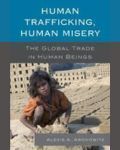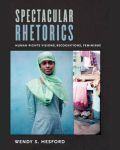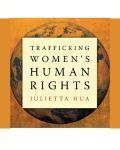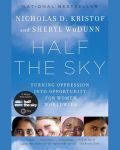
Aronowitz, Alexis. Human Trafficking, Human Misery: The Global Trade in Human Beings. Praeger Books, 2009.
Virtually all countries in the world are affected by the scourge of human trafficking, either as a source, transit, or destination country, or combination thereof. While countries have long focused on international trafficking, internal movement and exploitation within countries may be even more prevalent than trans-border trafficking. Patterns of trafficking vary across countries and regions and are in a constant state of flux. Countries have long focused on trafficking solely for the purpose of sexual exploitation, yet exploitation in agriculture, construction, fishing, manufacturing, and the domestic and food service industries are prevalent in many countries. Here, Aronowitz takes a global perspective in examining the nefarious underworld of human trafficking, revealing the nature and extent of the harm caused by this hideous criminal practice.
Virtually all countries in the world are affected by the scourge of human trafficking, either as a source, transit, or destination country, or combination thereof. While countries have long focused on international trafficking, internal movement and exploitation within countries may be even more prevalent than trans-border trafficking. Patterns of trafficking vary across countries and regions and are in a constant state of flux. Countries have long focused on trafficking solely for the purpose of sexual exploitation, yet exploitation in agriculture, construction, fishing, manufacturing, and the domestic and food service industries are prevalent in many countries. Here, Aronowitz takes a global perspective in examining the nefarious underworld of human trafficking, revealing the nature and extent of the harm caused by this hideous criminal practice.
Taking a victims-oriented approach, this book examines the criminals and criminal organizations that traffic and exploit their victims. The author also focuses on the different groups of victims as well as the various forms of and markets for trafficking, many of which have been overlooked due to an emphasis on sex trafficking. She also explores less frequently discussed forms of trafficking - in organs, child soldiers, mail-order brides, and adoption, as well as the use of Internet in trafficking. Drawing on her own field experiences in various parts of the world, the author offers real-life context throughout the book through descriptions of a number of cases with which she was involved or learned about in her travels. Together with insightful analysis, these stories uncover the true nature of human trafficking and illustrate the extent of its reach and harm.

Hesford, Wendy. Spectacular Rhetorics: Human Rights Visions, Recognitions, Feminisms. Duke University Press, 2011.
Spectacular Rhetorics is a rigorous analysis of the rhetorical frameworks and narratives that underlie human rights law, shape the process of cultural and legal recognition, and delimit public responses to violence and injustice. Integrating visual and textual criticism, Wendy S. Hesford scrutinizes “spectacular rhetoric,” the use of visual images and rhetoric to construct certain bodies, populations, and nations as victims and incorporate them into human rights discourses geared toward Westerners, chiefly Americans. Hesford presents a series of case studies critiquing the visual representations of human suffering in documentary films, photography, and theater. In each study, she analyzes works addressing a prominent contemporary human rights cause, such as torture and unlawful detention, ethnic genocide and rape as a means of warfare, migration and the trafficking of women and children, the global sex trade, and child labor. Through these studies, she demonstrates how spectacular rhetoric activates certain cultural and national narratives and social and political relations, consolidates identities through the politics of recognition, and configures material relations of power and difference to produce and, ultimately, to govern human rights subjects.

Hua, Julietta. Trafficking Women's Human Rights. University of Minnesota Press, 2011.
The history of human beings bought and sold, forced into lives of abject servitude or sexual slavery, is a story as old as civilization and yet still of global concern today. How this story is told, Julietta Hua argues, says much about our cultural beliefs. Through a critical inquiry into representations of human trafficking, she reveals the political, social, and cultural strains underlying our current preoccupation with this issue and the difficulty of framing human rights in universal terms.
In Trafficking Women’s Human Rights, Hua maps the ways in which government, media, and scholarship have described sex trafficking for U.S. consumption. As her investigation takes us from laws like the Victims of Trafficking and Violence Protection Act to political speeches and literary and media images, it uncovers dark assumptions about race, difference, and the United States’ place in the world expressed—and often promoted—by such images. The framing itself, exploiting dichotomies of victim/agent, rescued/rescuer, trafficked/smuggled, illustrates the limits of universalism in addressing human rights.
Uniquely broad in scope, this work considers the laws of human trafficking in conjunction with popular culture. In doing so, it constructively draws attention to the ways in which notions of racialized sexualities form our ideas about national belonging, global citizenship, and, ultimately, human rights.

Kristof, Nicholas and WuDunn, Sheryl. Half the Sky. Random House 2009.
From two of our most fiercely moral voices, a passionate call to arms against our era’s most pervasive human rights violation: the oppression of women and girls in the developing world.
With Pulitzer Prize winners Nicholas D. Kristof and Sheryl WuDunn as our guides, we undertake an odyssey through Africa and Asia to meet the extraordinary women struggling there, among them a Cambodian teenager sold into sex slavery and an Ethiopian woman who suffered devastating injuries in childbirth. Drawing on the breadth of their combined reporting experience, Kristof and WuDunn depict our world with anger, sadness, clarity, and, ultimately, hope.
They show how a little help can transform the lives of women and girls abroad. That Cambodian girl eventually escaped from her brothel and, with assistance from an aid group, built a thriving retail business that supports her family. The Ethiopian woman had her injuries repaired and in time became a surgeon. A Zimbabwean mother of five, counseled to return to school, earned her doctorate and became an expert on AIDS.
Through these stories, Kristof and WuDunn help us see that the key to economic progress lies in unleashing women’s potential. They make clear how so many people have helped to do just that, and how we can each do our part. Throughout much of the world, the greatest unexploited economic resource is the female half of the population. Countries such as China have prospered precisely because they emancipated women and brought them into the formal economy. Unleashing that process globally is not only the right thing to do; it’s also the best strategy for fighting poverty.
Deeply felt, pragmatic, and inspirational, Half the Sky is essential reading for every global citizen.

